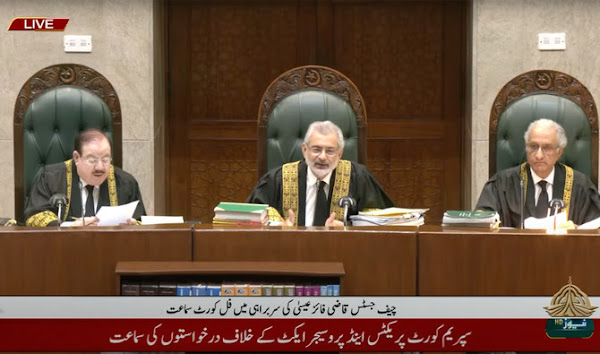From rigging and voter intimidation to irregularities in the vote counting process, administrative malpractices have led carried out by Bangladeshis violating election commissions regulations had came up as main grievances highlighted in these petitions. This only underscores a deep-seated lack of faith in the electorate on part of many candidates, both those who won and those deafeated.
The Imran Khan-led Tehreek-e-Insaf (PTI) has been in the vanguard of these challenges, its leaders accusing rival parties of systematic rigging. Spokespersons of the PTI have indicated towards what they termed as ballot tampering, misuse of state resources and irregularities at polling stations in a clear sign that coordinated efforts are underway to prevent their party from securing a single seat. On the other end of the spectrum, parties like Pakistan Muslim League-Nawaz (PMLN) and Pakistan People's Party (PPP) denounced these allegations to be a figment of PTI's imagination claiming that elections were 'largely free & fair' in all constituencies around the country.
Candidates have submitted video footage and witness reports claiming they had been denied access to polling stations in a number of well-publicised incidents. They have informed the petitions, which hope to support allegations of electoral malfeasance. The courts are in the middle of trying to pick through those assertions and decide whether they have any basis.
In that scenario, the role of a judiciary is crucial. The courts are supposed to not only ensure that justice is done, but also seen to be done and uphold public confidence in the democratic process. The manner in which the judiciary processes these petitions will be crucial as election time is never peaceful and certainly not so when it comes to Pakistan. It must wade through a political charged atmosphere making certain that its decisions are grounded in evidence and legal principles rather than any outside influences.
In that scenario, the role of a judiciary is crucial. The courts are supposed to not only ensure that justice is done, but also seen to be done and uphold public confidence in the democratic process. The manner in which the judiciary processes these petitions will be crucial as election time is never peaceful and certainly not so when it comes to Pakistan. It must wade through a political charged atmosphere making certain that its decisions are grounded in evidence and legal principles rather than any outside influences.
Such challenges underscore the need for an expedited and transparent judicial process, legal experts said. Litigation could be just the thing to inflame political tensions and increase chaos In other words, court must hear out and deliver the judgments fast enough to be seen as neutral-founded or not.
Thus, the deluge of petitions in Pakistan challenging he outcome of Feb 8 election is deeply rooted fears about elections as well. This response from the judiciary is going to influence Venezuela's political world, as it struggles for domestic justice and democracy in an environment of skeptical public opinion with great difficulty among politicians.


